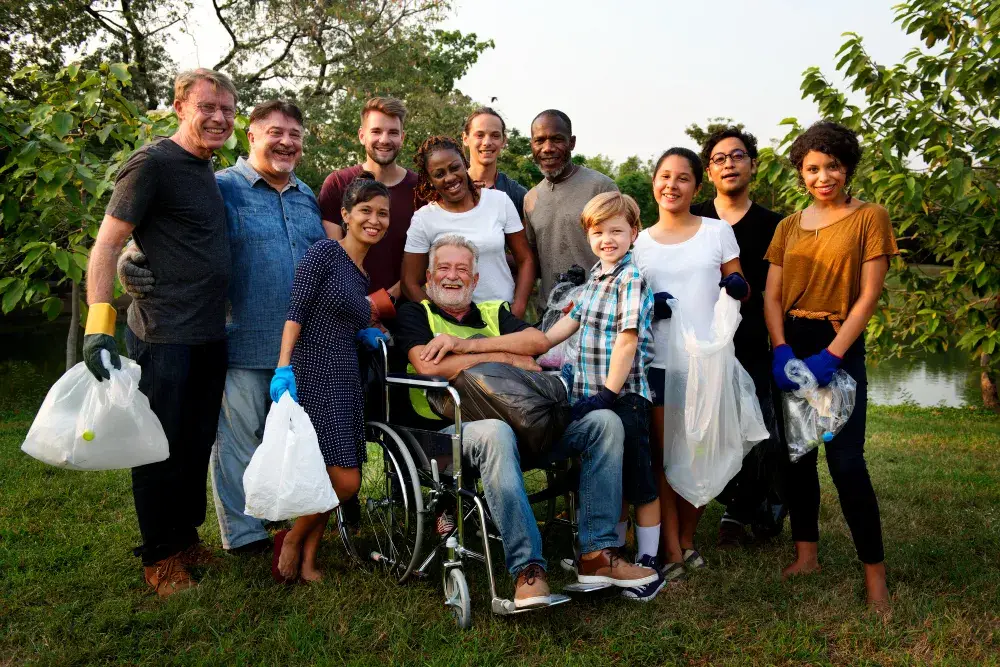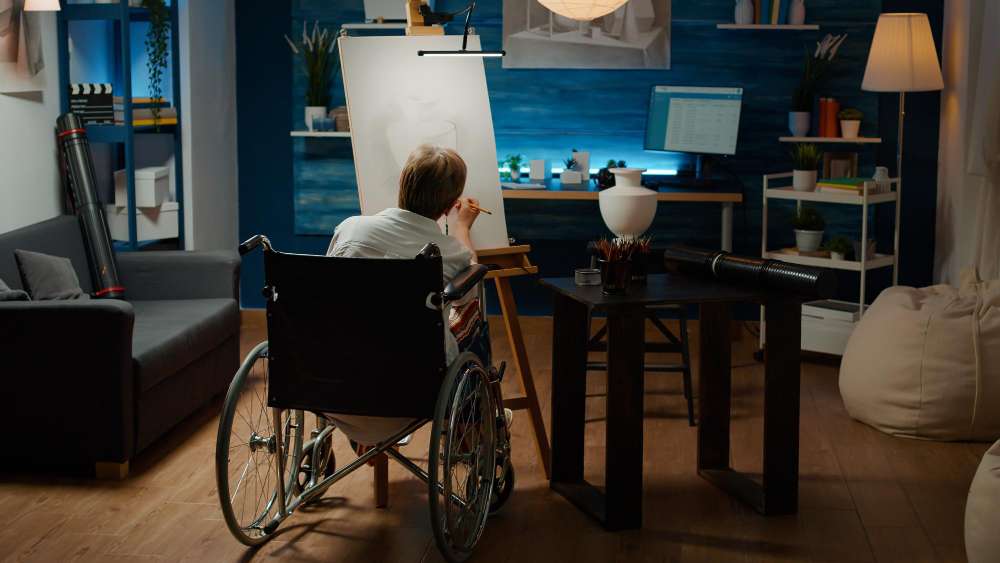
Whether it’s visiting local places, joining a group, attending appointments, or exploring new interests, share your goals and preferences with us.
We’ll connect you with experienced NDIS providers in Melbourne who offer individual or group-based support to help you confidently access your community.
Your chosen provider will work with you to create a personalised plan that supports your mobility, comfort, and community involvement—on your terms.

NDIS Community Access refers to the support you receive to participate in everyday community life—whether that means getting to the shops, joining a social group, visiting friends, or attending a local event. These supports help you engage with the world beyond your home, develop independence, and build a stronger sense of connection.
Community access is typically funded under Core Supports – Assistance with Social and Community Participation in your NDIS plan. It’s about enabling freedom of movement, fostering relationships, and supporting you to live a life that feels active and fulfilling.
Support is tailored to you—whether you want to explore more of Melbourne, get involved in local programs, or simply have a support person by your side for appointments or errands.
NDIS community access in Melbourne includes personalised support to help you get out and about, stay socially connected, and participate in everyday activities that matter to you.

Assistance getting to and from the places that matter—whether it’s appointments, shopping, social activities, or community programs. This may include help using public transport, taxis, or support worker vehicles.

Enjoy personal outings with the guidance and safety of a trained support worker. Visit cafes, libraries, shopping centres, local parks, or other places based on your interests and goals.

Need help getting to the doctor, therapist, bank, or post office? Your support worker can assist with travel, communication, and comfort while attending appointments or running errands.

Take part in group-based activities like art classes, fitness groups, community gardening, or volunteering—designed to support social connection and skill-building.

Whether it’s catching a movie, going to a local market, or attending a footy game, community access funding supports your participation in fun and fulfilling activities.

Stay connected to your values and traditions by attending religious services, cultural events, or family gatherings—with respectful, culturally aware support.

Develop real-world skills while accessing the community—like budgeting, reading timetables, asking for assistance, or planning a safe journey.

Try something new with confidence. From visiting a new venue to exploring potential hobbies, your support worker will help you step out safely and expand your horizons.

Community access isn’t just about social outings—it’s a powerful way to develop everyday skills that support long-term independence. Each activity becomes a chance to practise tasks that participants can carry into their daily routines.
For example, visiting a local café might help someone learn how to read a menu, manage money, and interact confidently with staff. Going to a community garden teaches responsibility, teamwork, and how to follow a schedule. Even catching public transport to an event helps build navigation and time management skills.
Through consistent participation, these real-world experiences prepare individuals to make independent decisions, solve problems, and engage more fully with their environment. That’s why community access is such a valuable part of the NDIS journey.
Community access offers more than just outings—it empowers NDIS participants to build skills, form connections, and lead more fulfilling, independent lives.
Community access helps participants make friends, reduce isolation, and feel part of society. It encourages positive social interactions in real-world settings, boosting confidence and communication skills.
By attending activities outside the home, participants build life skills like navigating transport, managing time, and making decisions. This independence supports long-term personal growth and autonomy.
Engaging in meaningful community activities provides structure, purpose, and joy. It can significantly reduce stress, anxiety, and depression, improving overall emotional wellbeing.
Community-based programs often focus on building practical skills such as cooking, teamwork, or financial literacy. These experiences empower participants to live more capable and self-reliant lives.

You don’t always need a support worker to participate in community activities. If you’re able to travel independently or attend sessions on your own, you may not require extra help. However, a support worker can be very helpful in certain situations. They can assist with navigating transport or unfamiliar places, provide social encouragement, help with personal care, and support communication or advocacy when you’re out in the community.
Participant choice is central to the NDIS. You can suggest clubs, events, or programs you want to join. You can propose new goals to include in your next plan review. You can change activities if something isn’t working for you.
You do not need to use a provider or matching platform. The activity must be safe, support your independence or wellbeing, and help you achieve a stated NDIS goal. Document your preferences to use during planning meetings.
A community access activity is any outing that helps an NDIS participant connect with their community and build important life skills. These activities can include going to a social group, attending an art or music class, or joining a local sports team. They may also involve volunteering, shopping with support, or visiting public places like libraries or community centres. The goal is to encourage independence, social inclusion, and personal development.
You can know if your activity is funded by checking if it aligns with the goals written in your NDIS plan. If the activity supports your social, recreational, or skill-building goals, and is considered reasonable and necessary, it’s likely to be covered. Look under your Core Supports or Capacity Building – Social and Community Participation budget. If you’re unsure, your support coordinator or plan manager can help you confirm before you book or attend the activity.
If you feel nervous about going out, that’s completely okay—many NDIS participants experience the same thing. You can start with small, familiar outings and gradually build up your confidence. Having a support worker or trusted person with you can make the experience feel safer and more comfortable. Over time, as you get used to new places and routines, your confidence and independence will grow. It’s perfectly fine to take things at your own pace.